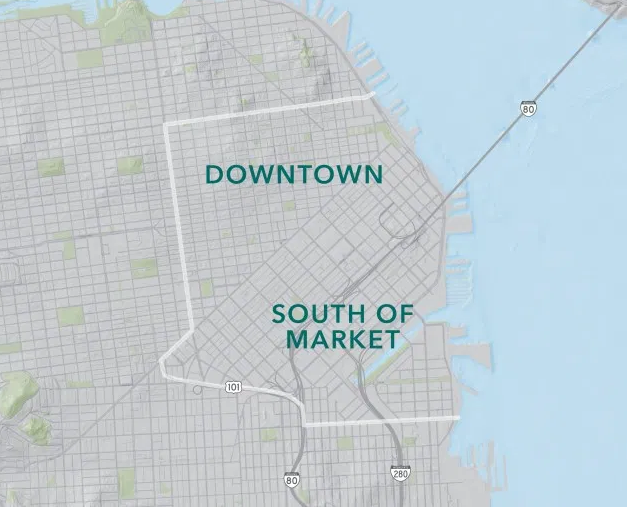Note: Metropolitan Shuttle, a leader in bus shuttle rentals, regularly sponsors coverage on Streetsblog San Francisco and Streetsblog Los Angeles. Unless noted in the story, Metropolitan Shuttle is not consulted for the content or editorial direction of the sponsored content.
The San Francisco County Transportation Authority is conducting a survey to get more information to help it structure downtown congestion pricing proposals for motorists.
From the CTA's survey page:
We are conducting this study to understand whether congestion pricing could be an effective and fair tool to reduce congestion. The best practice is to combine the fee with discounts, subsidies, and incentives to make the system fair and encourage the use of sustainable transportation modes like transit, walking, and biking.
We will assess additional benefits such as whether downtown congestion pricing could make Muni faster and more reliable, reduce greenhouse gas emissions, and generate revenue for transit and pedestrian, bicycle, and street improvements.
And:
Without action, gridlock is projected to get worse: Between now and 2040, the city is expected to add another 200,000 new residents and 150,000 new jobs.
As we've reported previously, congestion pricing works. Cities that have employed it, such as London, report improved air quality and lower traffic delays (and benefits to bus speeds and reliability). We now have case studies to look at in London, Oslo, Gothenburg, Milan, and Singapore. New York is preparing to implement it too.
Still, political analyst David Latterman of Fall Line Analytics, while acknowledging that pretty much everybody who knows anything about transportation understands that decongestion pricing, as it is sometimes called by advocates, is a necessary solution for traffic congestion, it's a very hard sell with voters. “Planners love it, the SFMTA loves it; the people who think about these things love it,” said Latterman during a presentation at SPUR earlier this month. “But the people do not. If you put it on the ballot, it would get whooped.”
That means the CTA and advocates for safe and livable streets have their work cut out, trying to explain how it works and why it's necessary. The survey is part of that effort.
Of course, congestion pricing is based on a basic economic concept called the "tragedy of the commons." It holds that when you give away a desired, finite resource (in this case road space) individuals will exploit it until that resource is no longer available to anybody (resulting in gridlock). The only solution is to price according to demand and charge people for using that resource, so that it remains available and safe for everybody, including those who ride the bus, ride a bike or scooter, or walk.
For a great case study on congestion pricing, check out this Streetsfilm about Stockholm:
To take the CTA's survey, click here (the CTA is offering prizes to survey takers). To find out more, attend the next congestion pricing committee meeting on ransportation Authority, 22nd floor, 1455 Market Street, S.F.






